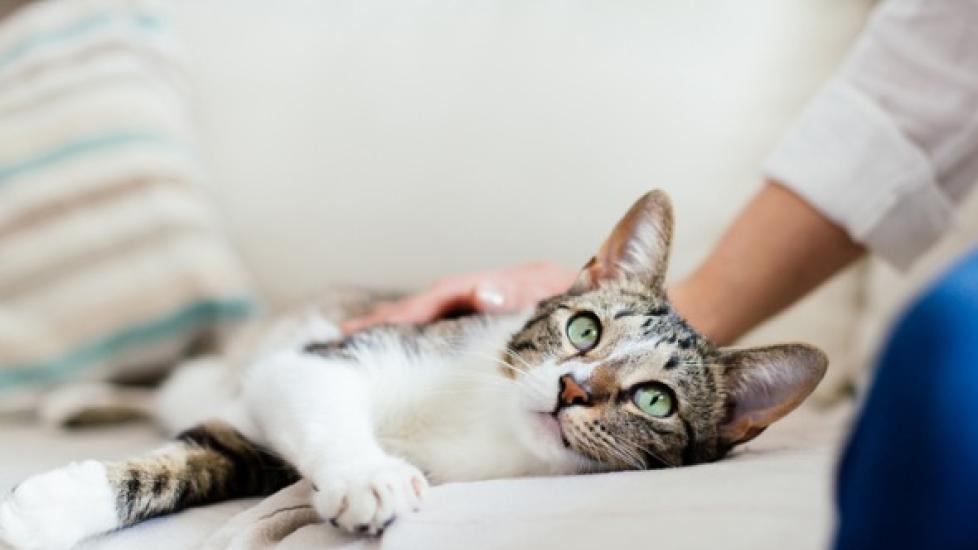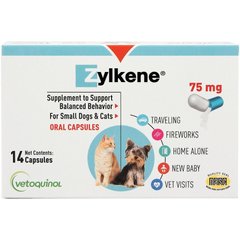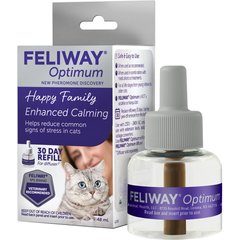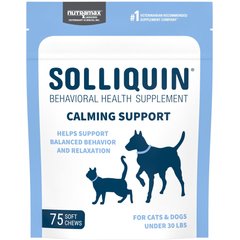How To Treat Constipation in Cats
iStock/disqis
Constipation is common in cats. Usually, it’s mild, and you can help your cat with simple home treatments.
But sometimes constipation in cats can indicate more serious health issues, and it can become very severe and uncomfortable. So how do you know when it’s a serious problem that needs vet attention?
Here’s what you need to know about cat constipation symptoms and causes, what you can do to help your constipated cat, and when to be concerned.
Treatment for Constipation in Cats
Constipation must be treated as soon as possible to reduce the risk of permanent damage due to prolonged distension of the colon. Effective treatment involves identifying and correcting the underlying disorder (if possible), removing the impacted feces, and preventing recurrences.
For immediate relief of constipation, your veterinarian can give your cat fluids and/or an enema. “Administering an enema to a cat is a veterinary job and should not be attempted at home,” says Liz Bales, VMD. Some types of enemas designed for people are actually very toxic to cats.
Vets can also prescribe medications or recommend over-the-counter solutions to help you manage the symptoms of your cat’s constipation.
More importantly, your vet can help identify the underlying issue that’s causing the constipation so it can be treated, rather than just trying to manage the symptoms.
Cat Constipation Home Remedies
In addition to the treatments prescribed by your vet, there are some potential lifestyle changes at home that may help your cat combat constipation. But remember: If your cat has not defecated in 48–72 hours or if they are acting uncomfortable, contact your vet immediately.
Here’s a list of tips to discuss with your vet that may help your cat:
1. Increase Water Consumption
Because dehydration contributes to constipation, drinking more water and staying well-hydrated helps prevent constipation. Cats aren’t very good at drinking standing water, so the best way to increase their water consumption and keep them well-hydrated is by feeding them wet food. This dramatically increases their water intake and significantly reduces their risk of constipation.
You can also encourage your cat to drink more water by adding setting up more water bowls in different areas of your home, trying pet water fountains orleaving a faucet dripping.
Hydracare™ is also a product that may help increase your cat’s total liquid intake and help keep them hydrated—plus, it’s liver-flavored.
2. Try a New Diet
Food allergies can cause intestinal inflammation and constipation in cats. Changing the protein source of your cat’s food (chicken, lamb, etc.) can reduce inflammation and allow the intestines to move more normally, reducing constipation.
For cats that may be allergic to multiple things, there are also special limited ingredient diets, prescription diets, and hypoallergenic diets available. It does take about eight to 12 weeks for a diet change to work, though, so this is part of long-term management.
Talking to your vet about the best diet for your cat may be a long-term way to help deal with constipation. When changing your cat’s food, follow the recommended transition period, mixing the old food with the new as stated on the cat food package.
3. Help Your Cat Maintain a Healthy Weight
Obesity causes intestinal inflammation, which causes things to slow down in the intestines. Too much water is then absorbed from the stool, causing constipation. In severe cases, there’s so much fat in the belly that it physically impedes movement of stools.
Your vet can help you figure out if your cat needs to lose weight and work with you to create a diet plan.
4. Increase Exercise and Enrichment
Exercise can help promote normal movement of the intestines, which helps treat and prevent constipation. Encourage your cat to be more active with things like cat toys, cat trees, window seats, and more playtime with you. Exercise will also help provide enrichment and reduce your cat’s anxiety, and it will help with weight loss.
5. Minimize Stress and Anxiety
Cats can easily become stressed when their routines are disrupted. There could be a more obvious cause, like having a new pet in the house or moving. Or it could be less obvious, like a change in your schedule, construction noise nearby, or a new dog barking in the neighborhood.
Sometimes it just takes time for a cat to adjust to changes. But you can help reduce stress and anxiety by using items like calming pheromones (Feliway), supplements (Zylkene and Solliquin® are commonly used), and/or medications.
Recommended Products
6. Add More Litter Boxes
Cats can be quite particular about their litter boxes. If they don’t like the location of a litter box or even the type of box or litter, they may not use it as much, which can lead to constipation.
You should have at least one more litter box than you have cats, and there should be at least one litter box on every floor of your home. You may need to experiment with different types of litter and litter boxes to find what your cat likes.
7. Try Fiber or Probiotics
Probiotics are “good bacteria” that help support healthy intestines. Healthy intestines will move stool along normally and keep stools soft, preventing constipation.
Fiber feeds the good bacteria and helps promote normal movement in the intestines. It can also help keep more water in the intestines, which helps treat and prevent constipation.
8. Monitor Your Cat for Constipation
Monitor the frequency of your cat’s defecation and stool consistency at least twice a week initially, and then weekly or biweekly.
Contact your veterinarian if you notice very hard, dry feces, or if you notice that your cat is straining while defecating.
Health Tools
Not sure whether to see a vet?
Recovery and Management of Cat Constipation
If the underlying cause is addressed, your cat should recover from constipation quickly. Work closely with your veterinarian and follow all instructions they give. Some adjustments, like food changes or medications, may need to be continued for the rest of your cat's life.



